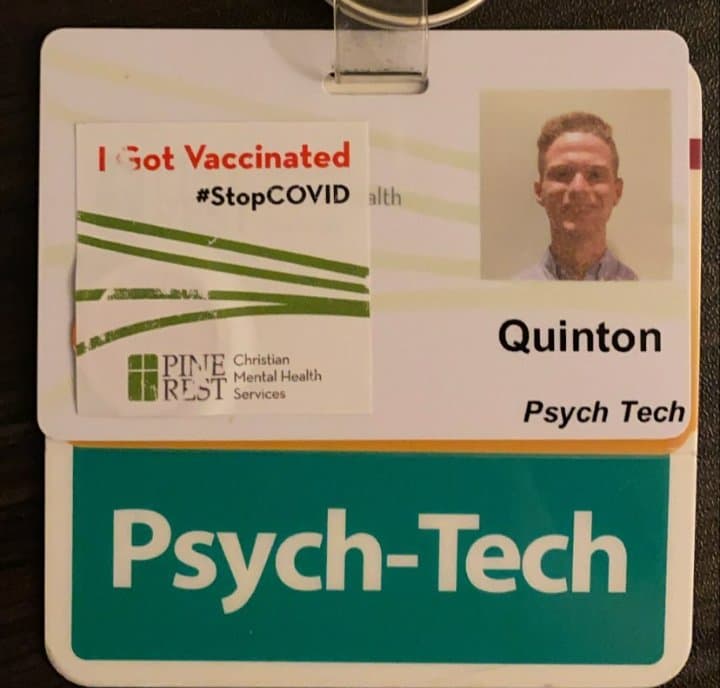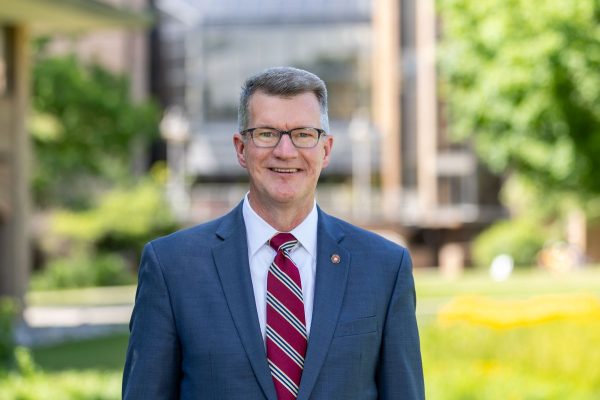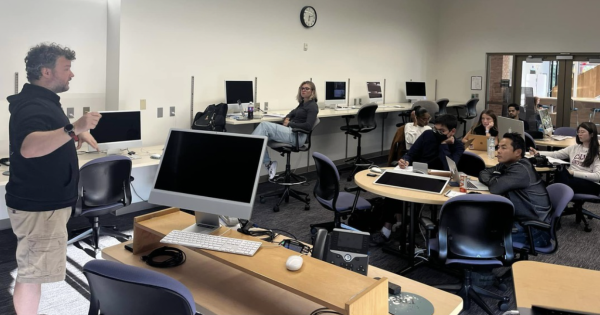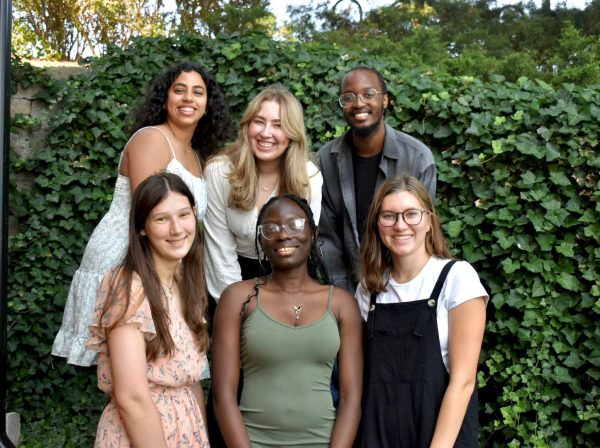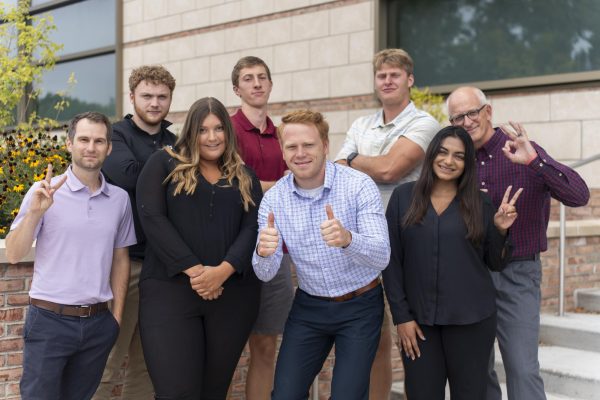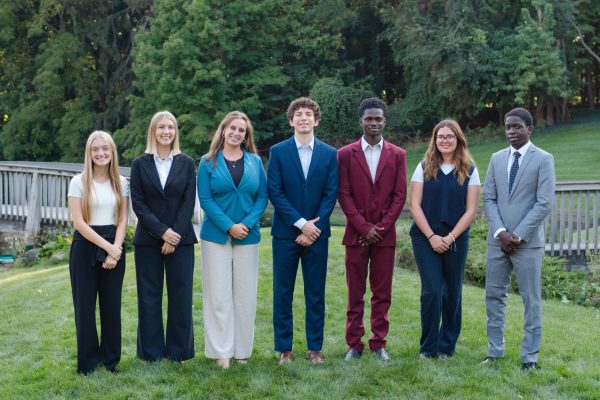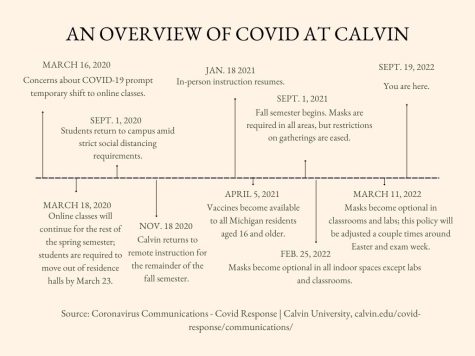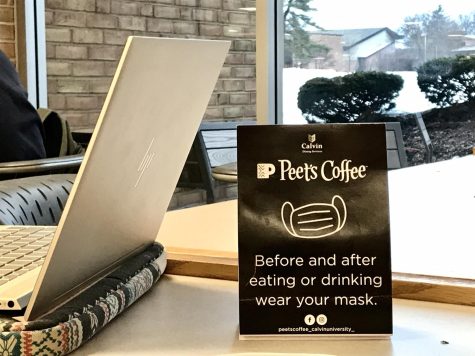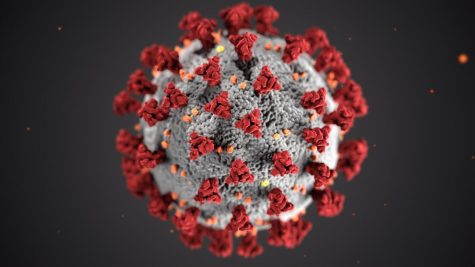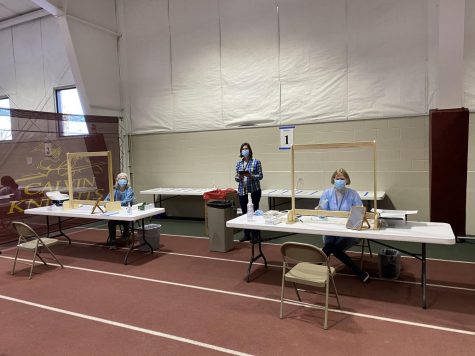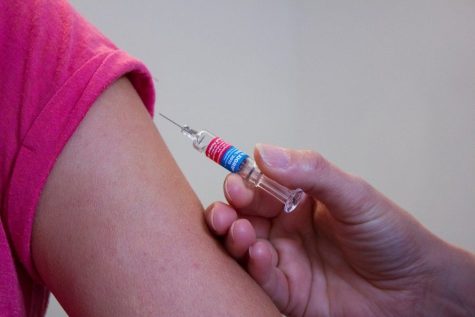Health students share COVID vaccine experiences
About 400 Calvin faculty, staff, and students have been able to receive vaccinations against COVID-19.
About 400 Calvin faculty, staff, and students, including many Nursing Department students, have been able to receive vaccinations against COVID-19, according to a press release.
Two vaccines have received emergency authorization. The Pfizer brand vaccine has been approved for ages 16+ and is 95% effective at preventing symptomatic COVID infections. The Moderna vaccine is approved for adults and is 94.1% effective. Both require two doses, about 3 weeks apart.
Both vaccines have been associated with mild symptoms such as vaccination site pain, aches and fatigues. Because these symptoms are indications of an immune system response, they seem to be more significant in younger people. No serious lasting impacts of the vaccine have been found.
Junior Quinton Quagliano works as a psychiatric technician at an inpatient psychiatric hospital and was therefore able to receive the Pfizer vaccine from a vaccination center at Pine Rest Christian Mental Health Services.
Quagliano experienced no side effects from the first dose, but the second dose was followed by two days of mild chills, headache, and muscle fatigue. “These symptoms were on par with the symptoms I experienced after the Hep C and seasonal flu vaccines,” Quagliano said, “so I was never worried.”
Qaugliano recommended that fellow vaccine-eligible students who are hesitant to receive it consult a medical professional familiar with their medical history, research how mRNA vaccines work on a cellular level and trust organizations like the CDC “ – don’t buy into trendy fear-mongering or shady blog posts.”
Junior April Alsum has received the first dose of the Pfizer vaccine in preparation for a spring mental health internship. Alsum said she is normally not a fan of needles, but the importance of this vaccine trumped her fears. She said, “I felt very educated on the vaccine and I felt that getting the vaccine was a social duty.”
Like Quagliano, Alsum did her own research before getting the vaccine, as well as consulting with psychology professor Julie Yonker.
Yonker got interested in how the COVID vaccine works because viruses is a topic that her Health Psychology class discusses. She took advantage of resources like journals (Nature, Science, and the Journal of the American Medical Association, to name a few), as well as websites such as the CDC and CNN’s Coronavirus Update. She recommends this video.
Yonker explained that the spikes in the coronavirus are what allows viral material entry into our cells. The Pfizer and Moderna vaccines use messenger RNA to prompt an immune response to those spikes, which prepares the body to fight COVID. The mRNA alone can’t cause a viral infection.
“God has blessed us with our bodies,” Yonker said, “God has blessed us with our minds, and we should use our minds to research what can happen to our bodies and take care of our bodies.”
“When you get the vaccine,” she said, “you are not only protecting yourself, but you are protecting others…. God calls us to care for others. Strange as it may seem, getting the vaccine is one of the best ways to care for others.”
“For anyone hesitant about getting the vaccine,” Alsum echoed, “I would suggest doing your own research on the vaccine before you get it. But I would also make sure you consider how your action affects the health of other people around you.”
Junior nursing student Valerie Swets is a CNA and works at a senior living and long term care facility, through which she was able to receive the vaccine. She received the Pfizer vaccine while at home in Indiana and experienced no side effects except a sore arm, which is common with many vaccines.
“As a healthcare worker,” Swets said, “I believed it was my responsibility to do my part and get the vaccine.”



